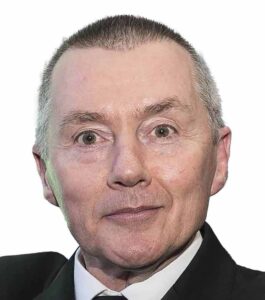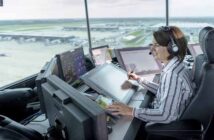
Former Aer Lingus boss Willie Walsh has expressed concern over the potential impact of the dispute on the future of the airline, highlighting financial and reputational risks.
I think you always have to be optimistic, but honestly, I see the situation as extremely difficult for Aer Lingus. When you consider its financial performance compared to other airlines in IAG, it has the weakest operating margin. Employee costs at Aer Lingus are already higher as a percentage of total costs than all other airlines, at about 23pc of their cost base. The airline is highly seasonal, so I believe the management will face a complex situation with little room to maneuver, given the demands of the pilots.
Aer Lingus cannot afford to meet the 24pc increase the pilots are looking for. Absolutely not. I believe the impact on the airline’s future financial performance would be detrimental and would damage any potential future investment in the airline. There have been talks of IAG withholding investments, how serious is that for Aer Lingus? It is already happening; you can see that aircraft meant for Aer Lingus have been allocated to other airlines within the group. With the high demand for aircraft in the market, IAG may look to sell off some of the aircraft originally intended for Aer Lingus.
I think the situation is very risky, and I’m sure all of the employees at Aer Lingus are deeply concerned. One commentator even said it could be existential for the airline. I agree with that assessment because the airline industry is extremely challenging. Aer Lingus was doing well until the pandemic weakened it financially. It has been struggling to recover, but its performance is weak compared to other airlines in the group. The future of the airline could be seriously undermined if they agree to the pilots’ demands. Even though the profits for the group were up last year, I don’t think they should be more generous to Aer Lingus. Each airline in the group should stand on its own and justify capital investment.
I think the other airlines in the group have recovered much more strongly, particularly the Spanish airlines. I would expect that when IAG is looking to the future and where it wants to invest, it will be looking away from Aer Lingus. And of course, the pilots say that they basically kept Aer Lingus afloat during COVID, and they are saying that these other airlines have received far larger increases for pilots, some up as far as 50pc. Is that the case? No, I don’t believe so. And you’ve got to give credit to everybody in the airline. I think it’s wrong to say one particular group kept the airlines going.
Everybody made sacrifices through that period – it was clearly the deepest crisis the industry has ever seen. But if you look at the cost base of the airlines, I think the thing that jumps out at me is that if you combine employee costs and fuel costs, Aer Lingus, that represents 54pc of their cost base, which is much higher than the other airlines in the group. And there are two aspects to that – employee costs, at 23pc, are higher than the average of the group, but the fuel costs, which traditionally are the highest cost element of an airline’s cost base, are very much dependent on the aircraft.
If you don’t get new aircraft and invest in new aircraft, well, then those fuel costs will increase as well. So the future does not look very promising if these costs are not addressed. And a cost increase for pilots wouldn’t just stop at pilots because you can imagine what the other employees would feel like if pilots were seen to get these huge increases that they’re demanding.
I think you could expect further disruption down the road as other employees look to copy that. And as everyone says, this dispute will have to be resolved. At the moment, the gap is so wide, you could drive a truck through it. Productivity will have to be part of the resolution. How they tend to get resolved elsewhere is you have independent assessment of the case. Now, in the case of Aer Lingus and the pilots, I understand there’s already been two independent reports which have made recommendations for increases for pilots, which have been rejected by the pilots. So typically, you would see this external intervention lead to a resolution. But given that it has failed to date, I think it’s going to be very difficult to see how this will be resolved.
So, you know, you’ve got to have huge sympathy for customers who are planning to travel because the disruption looks like it could be significant and ongoing for some time.
Customers don’t like to see their plans disrupted. They want to have a guarantee that when they book to travel, they’ll be able to do so. This will disrupt the plans of tens of thousands of families, maybe even more, around Ireland who are looking to get away for a break during the summer.
As a former pilot yourself, I would struggle to have sympathy. I think looking for a 24pc pay increase is way out of line with anything that I’ve ever seen before.
I was just looking at Flight Aware, and there were 15,000 flights in the air., we are back to we were in 2019, but it’s not the same in every part of the world. The Asia-Pacific region is still lagging behind, primarily due to disrupted flights into and out of China. For instance, flights between China and the US are only at about 20pc of their 2019 levels. However, when you aggregate the performance worldwide, we are above the 2019 levels.
Regarding the passenger cap at Dublin Airport, it is disappointing to see significant investment in the airport without fully utilizing the available capacity from the additional runway. Dublin Airport should be able to expand with two runways, and the demand is there. I believe the Irish economy will benefit from this. The cap, set in 2007, is an artificial restriction on growth at Dublin Airport and for the Irish economy.
Lastly, focusing on achieving Net Zero carbon emissions across the industry, do we have an alternative jet fuel yet? We have sustainable aviation fuels in production, but at very low volumes. It is estimated that just over half of 1pc (0.54pc) of total fuel used by the industry this year will come from sustainable sources. We aim to significantly increase this volume in the future and are optimistic about reaching Net Zero by 2050. Thank you, Willie Walsh, Director General of the International Air Transport Association, for joining us from Geneva this morning.




